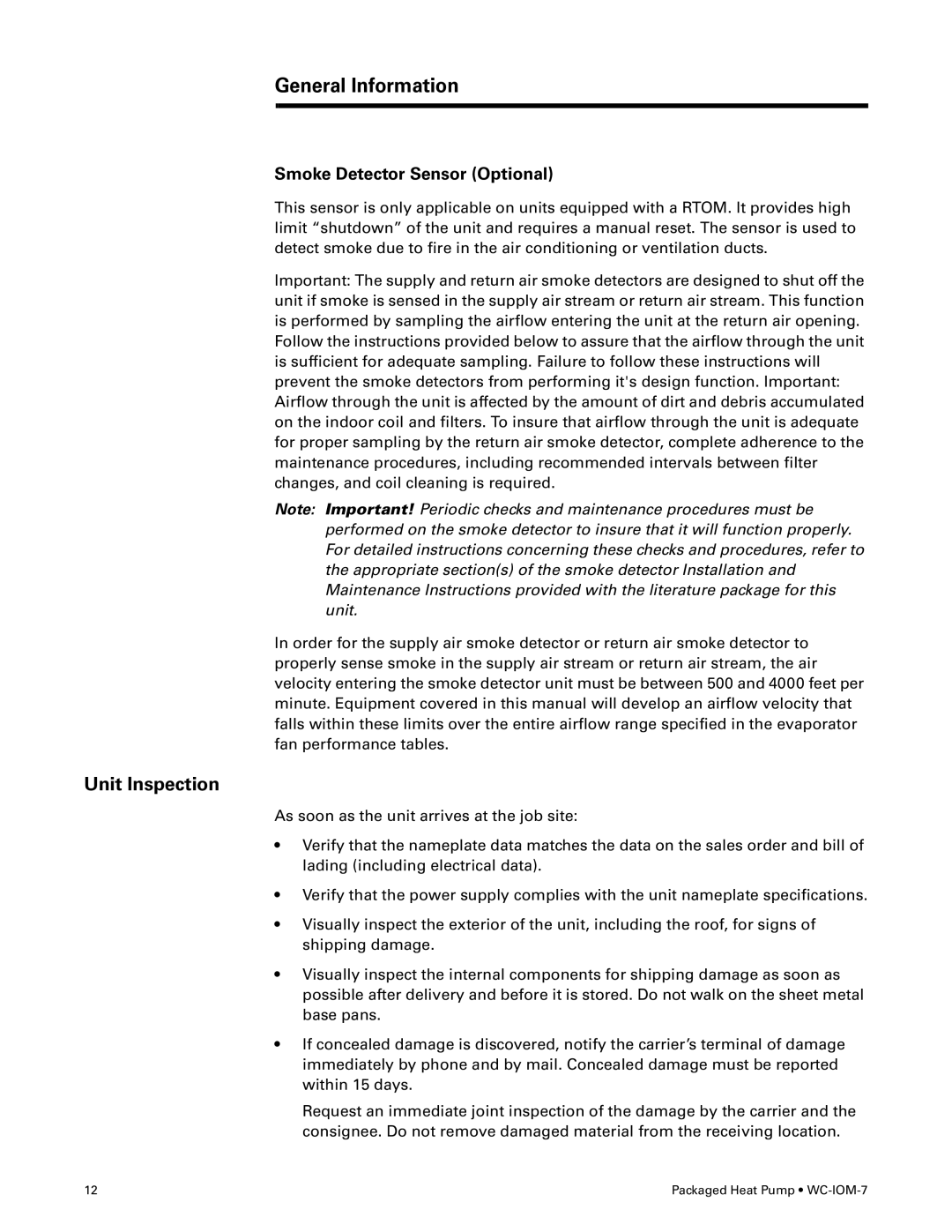General Information
Smoke Detector Sensor (Optional)
This sensor is only applicable on units equipped with a RTOM. It provides high limit “shutdown” of the unit and requires a manual reset. The sensor is used to detect smoke due to fire in the air conditioning or ventilation ducts.
Important: The supply and return air smoke detectors are designed to shut off the unit if smoke is sensed in the supply air stream or return air stream. This function is performed by sampling the airflow entering the unit at the return air opening. Follow the instructions provided below to assure that the airflow through the unit is sufficient for adequate sampling. Failure to follow these instructions will prevent the smoke detectors from performing it's design function. Important: Airflow through the unit is affected by the amount of dirt and debris accumulated on the indoor coil and filters. To insure that airflow through the unit is adequate for proper sampling by the return air smoke detector, complete adherence to the maintenance procedures, including recommended intervals between filter changes, and coil cleaning is required.
Note: Important! Periodic checks and maintenance procedures must be performed on the smoke detector to insure that it will function properly. For detailed instructions concerning these checks and procedures, refer to the appropriate section(s) of the smoke detector Installation and Maintenance Instructions provided with the literature package for this unit.
In order for the supply air smoke detector or return air smoke detector to properly sense smoke in the supply air stream or return air stream, the air velocity entering the smoke detector unit must be between 500 and 4000 feet per minute. Equipment covered in this manual will develop an airflow velocity that falls within these limits over the entire airflow range specified in the evaporator fan performance tables.
Unit Inspection
As soon as the unit arrives at the job site:
•Verify that the nameplate data matches the data on the sales order and bill of lading (including electrical data).
•Verify that the power supply complies with the unit nameplate specifications.
•Visually inspect the exterior of the unit, including the roof, for signs of shipping damage.
•Visually inspect the internal components for shipping damage as soon as possible after delivery and before it is stored. Do not walk on the sheet metal base pans.
•If concealed damage is discovered, notify the carrier’s terminal of damage immediately by phone and by mail. Concealed damage must be reported within 15 days.
Request an immediate joint inspection of the damage by the carrier and the consignee. Do not remove damaged material from the receiving location.
12 | Packaged Heat Pump • |
